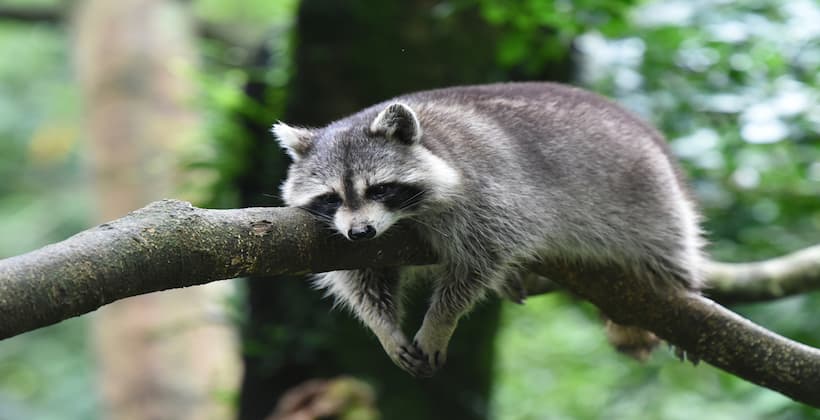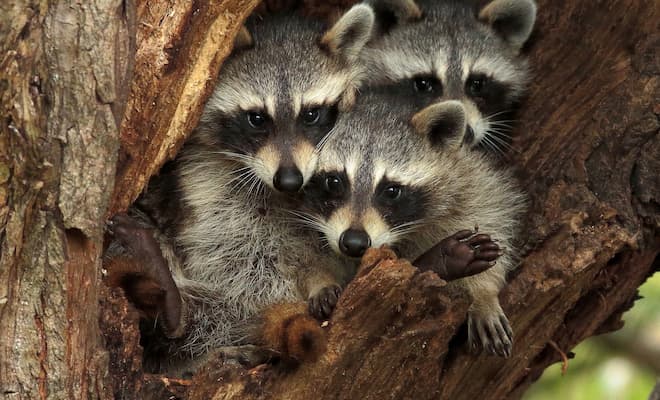Raccoons are fuzzy and funny animals who are loved as well as hated equally by those who come across them. They are extremely successful animals in urban cities and know how to skillfully use the city to their advantage treating it as a big playground and an all-you-can-eat buffet. Raccoons are usually active all year round, but things start to slow down a bit when the winter comes around. Raccoons start preparing their fat reserves in the fall by eating as much as possible. You might be wondering what this has to do with sleep.
if you have raccoons on your property, do not hesitate to contact Raccoon Control for fast and affordable service!
Raccoons have two kinds of sleep. The regular one where the raccoon sleeps and rests during the day and becomes active at night, and the other one is very interesting. As mentioned before, raccoons eat as much as possible for the cold winter days to hunker down before they go into the state of torpor. They can sleep for as long as one month. In between, they wake up and become quite sluggish. This difference sharply between true hibernation where the animals do not even wake for long extended periods of time spanning months after months in hibernation.

After the raccoon comes out of torpor in the warmer months during spring, the raccoon is ready to give birth to raccoon kits. Raccoons will then look for a safe place in order to give birth, They will scavenge for materials to make their raccoon burrow cozier and warmer. In urban areas, however, the raccoon will break into man-made structures by making use of their incredible dextrous paws and agility. Raccoons can easily climb up roofs and break into soffits that are located at the roof intersection. Once the raccoon uses its force to push through, the damage really starts to take shape.
Raccoons will start to damage the insulation, poop, and urinate everywhere. If it is blown-in insulation, the whole insulation needs to be replaced and the floors need to be sanitized. This can cost homeowners a steep price considering that insulation can be an even bigger investment. Raccoons are not generally known as destructive animals, but that perception rapidly changes once people get to experience raccoons first-hand. The action here is the best preventive measure and to prevent is to recognize the signs that come with raccoon activity.
Raccoons are nocturnal animals that thrive at night. Even though, the pattern can be somewhat different in urban cities as food is everywhere in abundance. If you hear light pitter-patter, or creaking floors at night chances are that you are hearing a raccoon leaving or entering the attic.
If you hear or suspect raccoon activity, do not hesitate to contact Raccoon Control by calling our customer support specialists!

